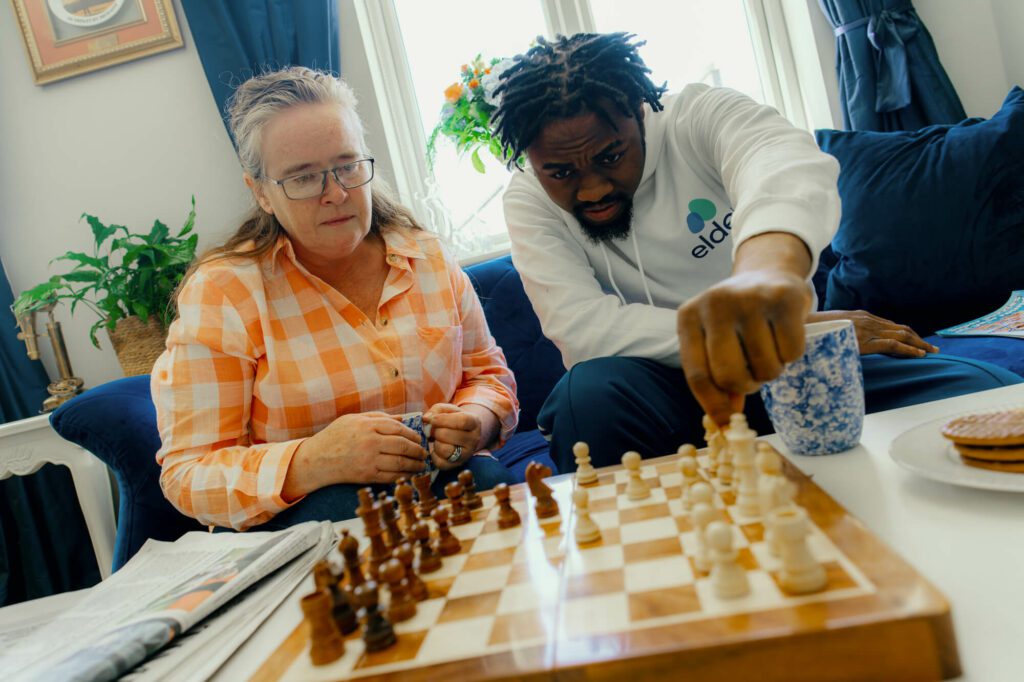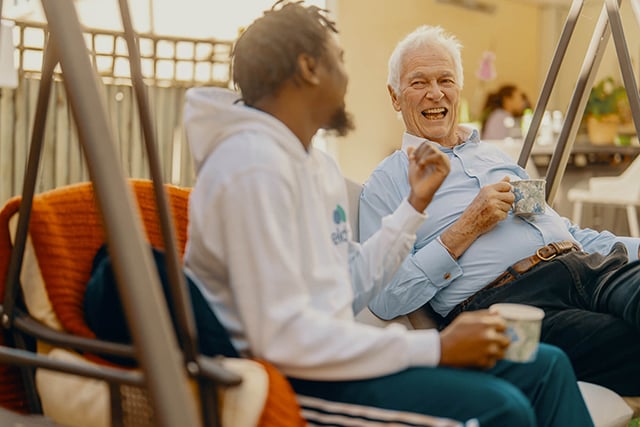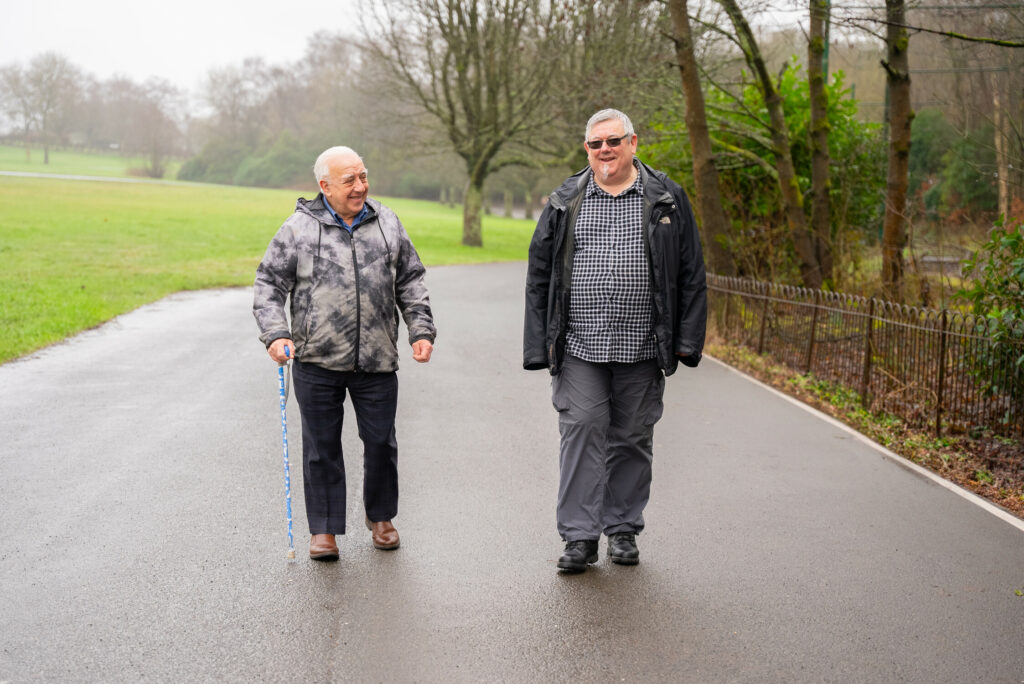Is being a self-employed live-in carer right for me?
Curious about live-in care? Find out more about working as a live-in carer in this handy guide.

What is live-in care?
Live-in care is a type of personalised care that’s helping older people to stay in their own homes from longer.
Carers move into their client’s home to offer one to one support with their daily needs. While live-in carers stay at their clients’ homes 24/7, they do get to take breaks during the day, and sleep at night when their clients sleep. Some clients may occasionally need assistance during the nighttime hours- if they need to go to the toilet, for example. However a live-in carer shouldn’t expect to handle more than three 15 minute wake-ups a night.
What kind of tasks could you be doing?
With Elder the care agreement will be between you and the family, there’s no care manager directing how you should care for your client. It means you’re free to work together with the family – calling on your skills and experience to provide truly person-centred care.





Glucose readings via finger pricks, Injections, Pessaries, Enemas, Suppositories

How does live-in care work?
On-going opportunities
These are opportunities with families seeking continuing care, and therefore don’t have an end date. You’ll become the primary carer for the person you’re caring for, typically staying in their home for cycles of around 4 to 10 weeks – depending on what you agree with the family. The arrangement continues for the foreseeable future as long as both you and your client are happy.
To find out more about how breaks work take a look at our guide here.
An example schedule for an on-going care agreement may look something like this –

Week 1
You arrive at the client’s home at around 12.30pm on your first day, for a handover from a previous carer, or the client’s family. You get to know your client and get settled in.
Week 2 – 4
You and your client are happy with the arrangement, and you continue with the placement. At this point you feel confident with their routine, and understand how they like things done.
Week 5
After handing over to a respite carer, you leave for your first break week. When you return, you stay on your placement for another 4-5 weeks before taking your next week off.

Fixed-length opportunities
A fixed-length live-in care opportunity is typically used for respite care, or to cover a primary carer whilst they’re on a break.
These placements vary in length – they can be as short as three days, or continue for a few weeks. They’ll always have a set start and end date so you’ll know how long you’ll be needed, and you’ll be expected to stay for the duration.
Ready to explore live-in care opportunities?
What's it like living in someone's home?
If you’re new to live-in care, the thought of moving into someone else’s home for the first time can be overwhelming, however we’ll do everything we can to make the move as comfortable as possible.
It’s important to have open and honest conversations with a prospective family before you agree to work with them. You can do this via ElderChat in your online Elder account. Many people use this as a good way to reach out and do introductions, before arranging a follow up video or phone call to really get to know each other. This is a great time to run through anything you’re not clear on or ask for any additional information you may need, e.g how to find the property from the nearest train station.
In some cases you’ll be taking over from another self-employed professional carer. You should be given their contact number, and it can be really useful to talk to them ahead of time to run through any questions you may have too.
To support your success, we’ll help ensure you have –
- Access to the ElderHub app to access support and book breaks
- Your own private bedroom in the property
- A safe place to keep your things
- Fresh bedding and clean towels
- A comprehensive handover with a carer, or a family member
- Confirmation that appliances like the cooker are working properly
- Contact numbers for the family, and a 24 hour helpline
The family are likely to be eager to meet you in person and get to know you, as they’ll want you to feel as comfortable as possible. And if you have any questions or concerns, our carer support team is just a phone call away.